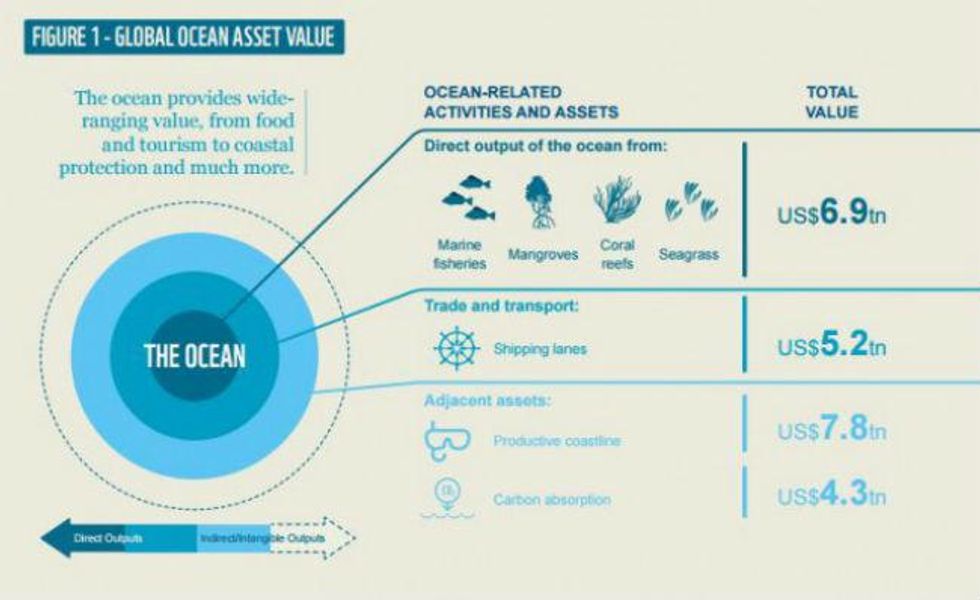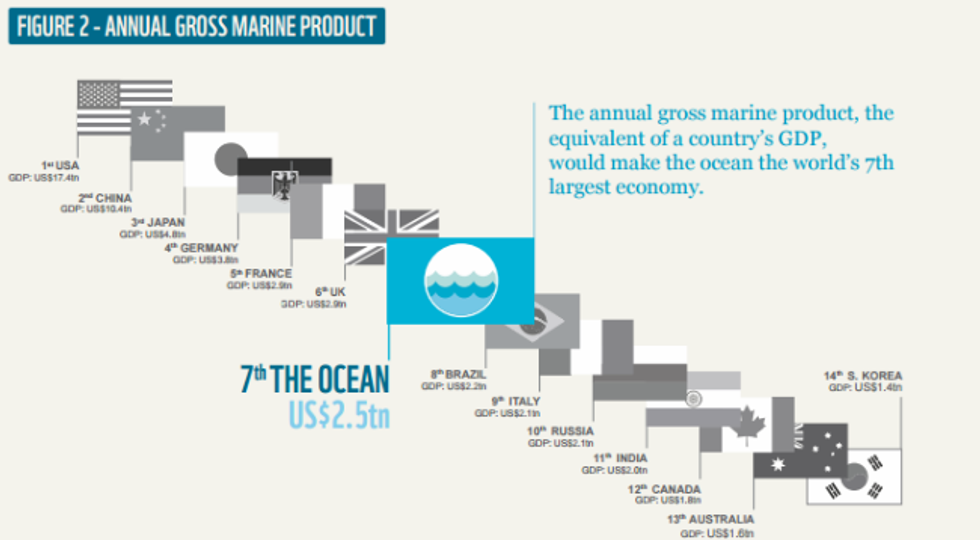News
Samuel Osborne
Apr 24, 2015

"Urgent action" is needed if the world wants to maintain its ocean economy, according to a new report by the WWF.
The world's oceans are worth at least $24 trillion in services such as fishing, tourism, shipping and carbon sequestration. In fact, if the oceans were a country, they would be the world's seventh economy in terms of GDP.
The report, published by the World Wildlife Fund (WWF), states that more than two thirds of these goods and services mentioned rely heavily on the oceans remaining healthy.
According to the report:
The evidence is clear: the ocean is a major contributor to the global economy, but its asset base is being rapidly eroded. To restore the ocean’s productive capacity before it is too late, the world must take urgent action.
- Reviving the Ocean Economy, WWF report
Currently, the oceans are being heavily degraded by pollution, overfishing, tourism and climate change.
One of the most striking examples of this is the loss of the ocean's coral reefs:
Recent studies indicate that at least 50 per cent of reef-building corals on tropical reefs in south-east Asia, Australia, the western Pacific, Indian Ocean and Caribbean have disappeared from reefs over the past 30 years.
While declining water quality and over-exploitation represent serious short-term threats to coral reefs, ocean warming from climate change and ocean acidification are widely appreciated as two of the greatest threats to reefs.
- Reviving the Ocean Economy, WWF report
The study also noted that 90 per cent of the world's fish stocks are over-exploited or fully exploited.
In order to save the oceans, the report lays out eight steps countries should take, including reducing emissions and committing to increase ocean and coastal conservation.
1. Ensure ocean recovery features strongly in the UN Post-2015 Agenda, including the Sustainable Development Goals
2. Take global action to avoid dangerous climate change and further damage to the ocean
3. Conserve and effectively manage 10 per cent of representative coastal and marine areas by 2020, increasing coverage to 30 per cent by 2030
4. Rebuild fish stocks to ecologically sustainable harvest levels
5. Drive new global cooperation and investment for the ocean
6. Reinvent public/private partnerships
7. Build transparent accounting of the value of ocean assets to improve decision-making
8. Share knowledge more effectively and drive institutional collaboration
More: The oceans were so hot in 2014 they broke scientists' charts
More: Four ways to prevent the oceans being choked with plastic
Top 100
The Conversation (0)















